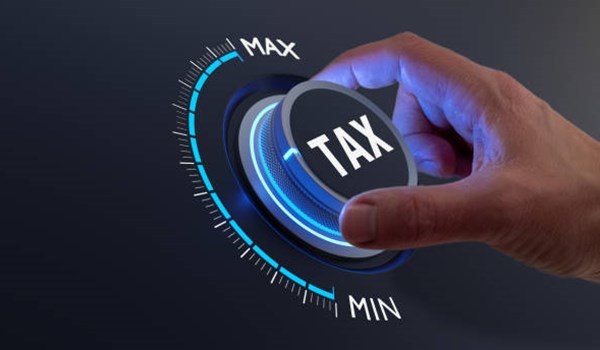In an eagerly awaited announcement, the European Commission (EC) published the updated draft of 2022’s VAT in the Digital Age (ViDA) package on 8 May 2024. The revised proposals were discussed by The Economic and Financial Affairs Council (ECOFIN) on 14 May 2024 with high hopes of political agreement being reached.
Unfortunately, those hopes were dashed as while there was agreement on two of ViDA’s three pillars (Digital Reporting Requirements and Single VAT Registration), it was not possible to reach agreement on changes to the VAT rules in respect of the platform economy and the deemed supplier rules.
It is a matter of when and not if the proposals are formally adopted and there is a desire not to split the proposals so work will continue on reaching a compromise that is acceptable to all Member States.
What is ViDA?
ViDA is the EC’s proposal to modernise the VAT system by taking account of advances in technology to reduce the VAT gap and ensure that the VAT system can cope with the way that businesses use technology to operate now and in the future.
There were three pillars in the original ViDA proposal which all remain in the updated draft:
introducing a real time digital reporting system for cross-border transactions based on e-invoicing
expanding the rules for digital platforms to cover the provision of short-term accommodation and passenger transport
expanding the single VAT registration under the One Stop Shop (OSS) scheme.
As expected, the timescales for when the pillars will become effective have been pushed out from the 2025 dates due to the protracted discussions and lack of agreement on the original proposals. This will though give businesses adequate time to prepare.
Digital Reporting Requirements (DRR) and E-invoicing
These were the most controversial proposals as some Member States have already introduced continuous transactions controls (CTCs) into their domestic legislation. Originally scheduled for 2028, these will now be rolled out in the next decade with them scheduled to come into effect on 1 July 2030.
There will be a requirement for digital reporting of the following transactions:
intra-EU sales of goods
intra-EU acquisitions of goods except for transfers of own goods which will be covered by the extension to OSS
reverse charge sales of goods and services for which the customer is liable under the reverse charge mechanism
purchases of services under the reverse charge.
Member States may decide not to require reporting of acquisitions and reverse charge purchases – this is similar to EC Sales Lists in that some Member States require EC Purchases Lists as well.
On e-invoicing, Member States will be able to force established businesses to use e-invoicing for local sales without approval from the EC which is currently required.
One of the controversial measures in the original proposal was the timeframe for submitting declarations and issuing e-invoices. Under the new proposal, both have been extended:
e-invoices should be issued within 10 days of the chargeable event (increased from two days in the original proposal)
for sales, they need to be reported when the invoice is issued (for self-billed invoices it is 5 days from the buyer issuing the self-billed invoice)
for purchases, they need to be reported within 5 days of the issue of the invoice.
Once digital reporting is introduced, there will no longer be a need for EC Sales and Purchases Lists as the information will be obtained from the digital reports. It should be noted that digital reporting will not only apply to established businesses in a Member State but also to non-resident businesses that are registered for VAT locally.
As is often the case, Member States will have choices to make as to how they implement the proposals, and this has the potential to create challenges for businesses.
For e-invoicing of transactions that are subject to the EU digital reporting requirements, they have to meet the EU standard format but Member States can allow other formats for transactions such as local sales. This creates a risk that there could be multiple requirements in place which could cause complexity.
There may also be challenges with digital reporting if a Member State mandates that all sales will have to be reported digitally as it will be necessary to determine how the local requirements interact with the reporting required under the EU mandate. Where a Member State does require all sales to be reported, it can require the purchaser to hold a valid e-invoice in order to be able to recover VAT – this represents a significant change from the current rules and could create challenges to securing recovery.
Digital platforms and marketplaces
These changes were originally scheduled for 1 January 2025 but are now proposed for 1 July 2027.
The changes are to address the perceived distortion of competition and non-taxation of platform supplies of short-term accommodation and passenger transport. Examples of platforms in this context are Airbnb for accommodation and Uber and Bolt for transport. There are already rules in place which make platforms liable for supplies of electronically supplied services and these will be extended. This will happen where:
the underlying supplier does not declare that they will account for the VAT due
they do not provide a valid VAT number to the platform.
In this instance the platform will become liable for VAT on the selling price of the service to the end-user. This will put these supplies on the same footing as supplies made by traditional players in these markets such as hotels and taxi companies.
In a change from the original proposal, Member States will be allowed to exclude supplies of these services made by businesses who are exempted from VAT under the special mechanism for small enterprises. This appears to be on the basis that VAT would not have been due if the sale was made directly to the end user by the business as they are not liable to account for VAT on their sales. We will need to wait and see which Member States, if any, take this option.
In a further change, the proposal also looks at the place of supply of the facilitation services provided by the platforms and marketplaces to non-taxable persons. This is because Member States currently treat this differently and consistency is required to remove the risk of double and non-taxation. This will be achieved by a new article in VAT Directive 2006/112/EC which will state that the place of supply of a facilitation service provided to a non-taxable person shall be the place where the underlying transaction is supplied.
With respect to sales of goods, the original proposal would have extended marketplace’s liability on B2C sales of goods to include EU established sellers (currently this only applies to sales made by non-EU established businesses). This measure will likely not go ahead at this stage but may be resurrected at some point in the future as many countries around the world are making marketplaces liable for the VAT due on all sales made via their platforms.
Single VAT registration
These were also originally scheduled for 1 January 2025 but, as with the digital platform changes, are now proposed for 1 July 2027.
The EC has long had the aim of allowing businesses to be solely registered in their home Member State and use that registration to account for VAT due throughout the EU. This aligns with the concept of a Single Market whose benefits are rather hampered by having to register in multiple Member States. Implementation of the initial OSS in January 2015 and its extension in July 2021 went someway to achieving this aim but excluded a number of transactions which meant that business trading across the EU still had to register in multiple Member States.
The extended OSS will allow the following transactions to be reported in a single return:
transfers of own goods between Member States
additional B2C sales of goods that are currently excluded from the OSS scheme such as installed goods and goods sold on board ships, aircrafts and trains
local sales of B2C goods by non-established suppliers.
Businesses that are established in a Member State will continue to account for local B2C sales via their home registration rather than the OSS. This local registration is a pre-requisite for being able to utilise the extended OSS.
The inclusion of the transfer of own goods within the OSS will allow the current call-off stock simplification, introduced by the 2020 Quick Fixes, to be removed as it will no longer be required.
Another mechanism to reduce the number of registrations required by a business trading across the EU is the extension of the extended reverse charge for supplies of goods and services made by a non-established supplier. Many Member States currently have this mechanism in place, but it is not universal which often results in the need for additional registrations. The proposal would mandate the application of the reverse charge for sales by non-established sellers. There would be a requirement to report the transactions on a recapitulative statement so that the tax authorities are aware of the transactions that are taking place.
In summary
While the changes are not going to happen for a few years, businesses need to start considering how they will impact them and make appropriate plans. This applies not only to the current transactions being made but also to any flows that are anticipated for the future. Careful supply chain mapping and review of existing obligations will be needed to ensure that transactions and the VAT on them are reported in the correct way.
We will update further as the proposals pass through the approval and legislative process.
If you have any questions please do not hesitate to get in touch with Rob Janering, or your usual Crowe contact.



